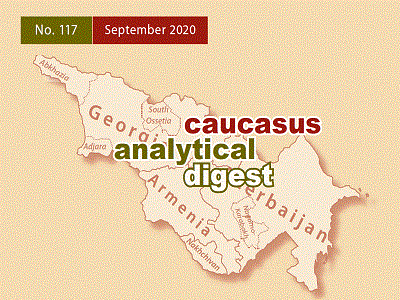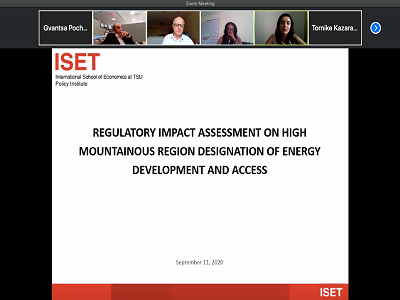- Details
The ISET Policy Institute has once again demonstrated its relevance and focus on the regional economic research with the publication of a research paper in the 117th issue of the Caucasus Analytical Digest (CAD), a bimonthly online magazine. The Institute’s article, 'International Diversification of Agricultural Trade of Armenia, Azerbaijan, and Georgia', was written by Phatima Mamardashvili, Salome Gelashvili, Ia Katsia, and Salome Deisadze and examined the agricultural trade relations of the three South Caucasus countries from 2002-2018. The research analysed the differing economic results from the three countries' individual foreign trade policies, particularly with regards to the varying levels of cooperation between the South Caucasus nations and Russia and the European Union.
- Details
On September 11, ISET Policy Institute's Agriculture and Rural Policy Research Center (APRC) presented the main results of the Regulatory Impact Assessment (RIA) on the High Mountainous Region Designation of Energy Development and Access to the project's stakeholders. This was done as part of a workshop organized by the USAID Energy Program, which was attended by representatives of the Ministry of the Economy and Sustainable Development, USAID's Energy Program, the private sector, and a number of NGOs. The workshop was facilitated by Daniel Potash, Chief of Party of the USAID Energy Program.
The main objective of the workshop was to share the results of the assessment and receive feedback from the stakeholders. The study examined the current situation regarding energy access in Georgia's mountainous regions and explored the potential for adopting various alternative energy sources. It also assessed the costs and benefits of adopting technologies for respective alternative energy sources and provided recommendations for designing targeted interventions to ensure access to energy in alpine regions.












